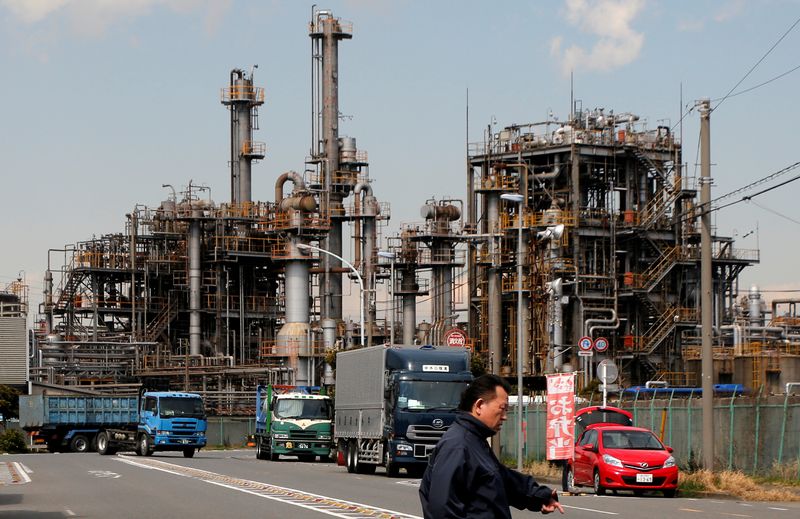Japan’s June factory activity growth eases on China curbs – flash PMI
2022.06.23 03:56

FILE PHOTO: A worker walks near a factory at the Keihin industrial zone in Kawasaki, Japan, March 8, 2017. REUTERS/Toru Hanai
TOKYO (Reuters) – Japan’s factory activity growth slowed in June as China’s strict COVID-19 curbs took a toll on manufacturing demand, even as service sector sentiment hit a nearly nine-year high on the fading pandemic drag.
China’s COVID-19 lockdowns have disrupted supply chains, heavily impacting trade-reliant economies such as Japan.
The au Jibun Bank flash Japan Manufacturing purchasing managers’ index (PMI) slipped to a seasonally adjusted 52.7 in June from a final 53.3 in May, marking the slowest expansion since February when it also was 52.7.
In April and May, the manufacturing PMI also grew at a slower rate than in the prior month.
Overall new orders shrank for the first time in nine months due to the deepening pressure on already disrupted supply chains, while output grew at its slowest rate in three months, the survey showed.
New business in the services-sector rose for a second straight month as a pickup in tourism helped strengthen overall private-sector conditions.
“Activity at Japanese private sector businesses rose solidly,” said Usamah Bhatti, economist at S&P Global (NYSE:SPGI) Market Intelligence, which compiles the survey.
Overall private-sector sentiment saw the sharpest rise since November amid the strongest expansion in services since October 2013, he said.
The au Jibun Bank Flash services PMI Index improved to a seasonally adjusted 54.2 in June from the prior month’s 52.6 final. The 50-mark separates contraction from expansion.
The au Jibun Bank Flash Japan Composite PMI, which is calculated by using both manufacturing and services, rose to 53.2 from a final of 52.3 in May.
But the survey also showed Japanese firms continued to face widespread pressure from high raw material prices.
“Prices charged for Japanese goods and services rose at an unprecedented rate for the second successive month as higher material and staff cost burdens were partially passed through to customers,” Bhatti added.








